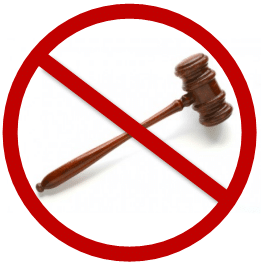3 Practical Ways To Become Free From Judgmentalism

Today, I want to keep exploring ways to help defeat judgmentalism. It’s an ugly cancer that needs to be cut out of our lives. What’s the procedure?
[featured-image single_newwindow=”false”]Jesus’ practical instruction, recorded in Luke 6.37-38, provides us with some insights for dealing with judgmentalism.
Judge not, and you will not be judged; condemn not, and you will not be condemned; forgive, and you will be forgiven; give, and it will be given to you. Good measure, pressed down, shaken together, running over, will be put into your lap. For with the measure you use it will be measured back to you.
Since it is almost impossible not to judge, start with what IS possible —
1. Don’t condemn – this is more doable than not judging. How do you not condemn?
Begin by:
a) not hating – Whoever says he is in the light and hates his brother is still in darkness…whoever hates his brother is in the darkness and walks in the darkness, and does not know where he is going, because the darkness has blinded his eyes (1 John 1.9-11). As a Christian you are in the light. Act like it by not hating anyone. If you hate anyone, you cannot see right. Hate is an intense or passionate dislike or aversion for someone or something. There is no gray area here. The Father of mercy, love, kindness, and goodness does not have children characterized by hatred. If you struggle with hatred, keep repenting and confessing this sin until you are free from it.
b) not labeling people – Conduct yourselves wisely toward outsiders, making the best use of the time. Let your speech always be gracious, seasoned with salt… (Colossians 4.5-6). Train yourself to hold your tongue when wanting to call someone a name – “jerk,” “stupid,” “clueless,” “idiot,” “loser,” or a derogatory slur of any kind. Start by not labelling yourself. Monitor your words as you drive. Take a hard look at the words that come to mind when someone acts contrary to you. Instead, thank God for them. After all, that “knuckle head” is teaching you not to judge. Name calling has become so common we don’t even think about it. Think about it!
2. Forgive – this is a little more difficult. Forgiveness takes on many forms. But, a good description of forgiveness is “to release the emotional damage in our hearts for what a person has done.” The condemnation you feel towards a person may be an indication of a lack of forgiveness towards them or towards another person who is similar to them. An excellent book on forgiveness is Total Forgiveness by R.T. Kendall. If you struggle with forgiveness, you will struggle with judgmentalism. Say the Lord’s prayer – “…forgive us our trespasses as we forgive those who trespass against us…” – throughout the day. See what changes this will bring.
3. Give – this may be even more difficult. Move from not hating/labeling through forgiveness to something positive for the one you want to condemn. This step is crucial to defeating judgmentalism in your life. Act contrary to your initial reaction. Apply the “Golden Rule” here: whatever you wish that others would do to you, do also to them. Open the door for her. Let him go ahead of you in line. Give him $5. Smile, pray for or offer to help the woman trying to quiet her screaming child. Empty the dishwasher in love. Serve your wife before serving yourself. Give thanks for your wayward child or noisy neighbor. In other words, do something positive for the person you want to judge.
Review
- Stop yourself from saying something negative about the person you would ordinarily judge.
- Privately forgive the person (or someone similar) you would ordinarily judge.
- Do something positively tangible for the person you might ordinarily judge.
There’s more coming. But this is a good place to start.
How will you apply these practical instructions to your own judgmentalism? Share below.
Dr. K
